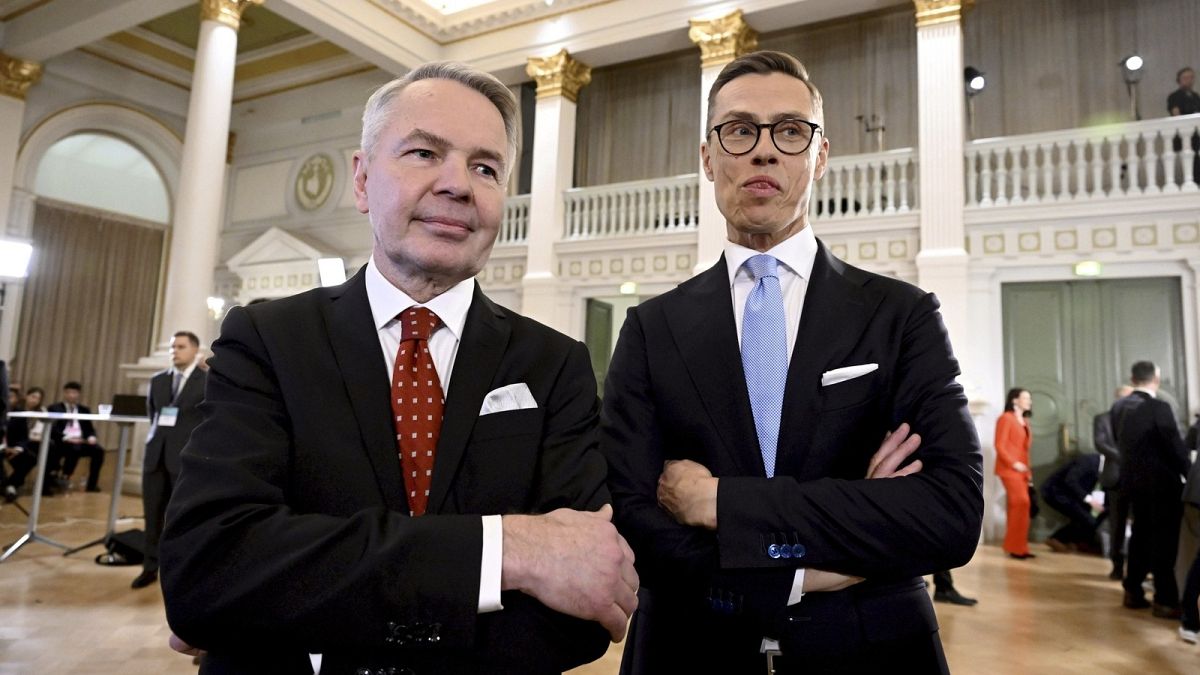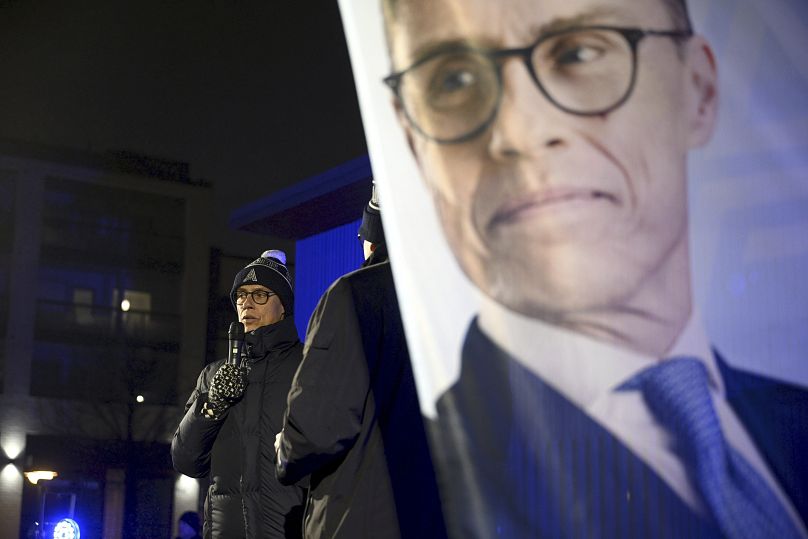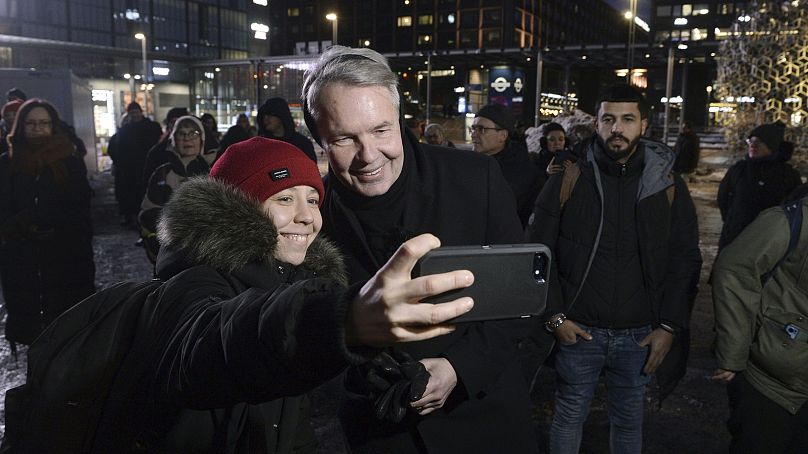Two candidates from opposing centre-right and green parties go head to head in Sunday's run-off presidential vote, but both share a hard line on Russia.
Finns head to the polls on Sunday to choose between two seasoned politicians bidding to be their next head of state.
Former Prime Minister Alexander Stubb, 55, from the centre-right National Coalition Party will take on former foreign minister Pekka Haavisto, 65, from the left-leaning Green League.
The successful candidate will steer the country's foreign and security policy after it recently became a member of the NATO alliance, historically abandoning its position of neutrality.
Both hopefuls share a hard line towards Moscow, support strengthening ties with Washington, and vow to continue backing Ukraine military and financially.
The country shares a 1,340 kilometre border with Russia. In November, Helsinki closed all eight official border crossings with its eastern neighbour, alleging that Moscow was using migrants to destabilize Finland in an alleged act of “hybrid warfare.”
In the last days of campaigning, however, tiny differences in style and approach between the candidates have emerged.
“After the exceptionally polite campaigning of the first round, there has been a bit more confrontation” between the two men vying for the post, said Teivo Teivainen, professor of world politics at the University of Helsinki.
Stubb and Haavisto differ in their stance on the hypothetical question of whether Finland, a NATO newcomer, would allow the transportation of the alliance’s nuclear weapons through its territory.
“Stubb has a more positive attitude in bringing in nuclear weapons into Finland’s territory,” Teivainen said. “This reflects his slightly more positive line towards NATO integration and the United States.”
Unlike in most European countries, the president of Finland holds executive power in formulating foreign and security policy together with the government, especially concerning countries outside the European Union such as the United States, Russia and China.
The head of state also commands the military, particularly important in Europe’s current security environment and the changed geopolitical situation of Finland, which joined NATO in April 2023 in the aftermath of Russia’s attack on Ukraine a year earlier.
Polls show Stubb's lead narrowing
A member of the conservative National Coalition Party, Stubb took the top spot in the first round of the election on Jan. 28 with 27.2% of the vote.
Stubb, who led the government in 2014-2015 and earlier held several other cabinet posts, is the touted favourite to succeed current president Sauli Niinistö.
But polls show Stubb's lead narrowing at the last minute, as Haavisto makes gains.
Haavisto, the runner-up in the first round, was Finland’s top diplomat in 2019-2023 and the main negotiator of its entry into NATO. A former conflict mediator with the United Nations and a devout environmentalist, Haavisto took 25.8% of the votes in the first round.
A runoff was required because none of the candidates got more than half of the votes in the January ballot.
Haavisto, a former leader of the Green League who is running as an independent, is seeking the post for a third consecutive time after the 2012 and 2018 elections.
The head of state is expected to remain above the fray of day-to-day politics and largely to stay out of domestic political disputes.
However, Finland was hit by massive labour union strikes earlier this month, and the two candidates have faced questions on the campaign trail.
Stubb distanced himself from his party’s approach of giving employers and employees more freedom to settle disputes locally and said he wouldn’t interfere with labour market issues as a president.
For his part, Haavisto said he would try — at the very minimum — to bring the parties together for talks behind the scenes.
Far-right and liberal voters could swing outcome
The swing voters will be the supporters of the far-right populist The Finns party and the rural-based Center Party.
The candidates for those parties were eliminated in the first round, but some 615,000 people, or nearly 20% of voters, cast their vote for the speaker of Parliament, Jussi Halla-aho, the former leader of The Finns.
Those voters favouring traditional values will now decide the Finnish presidency, analysts say.
“The second round of the election will primarily be decided by the voters of The Finns and the Center Party,” Teivainen said. “There’s a lot of conservatism and patriotism among them, so Haavisto’s homosexuality and civil service background have significance.”
Conscription military service or civil service is mandatory for Finnish males.
Haavisto's strong advocacy for green policies is seen as alienating or splitting some voters, while Stubb's centre-right backers seem much more united in their support.


